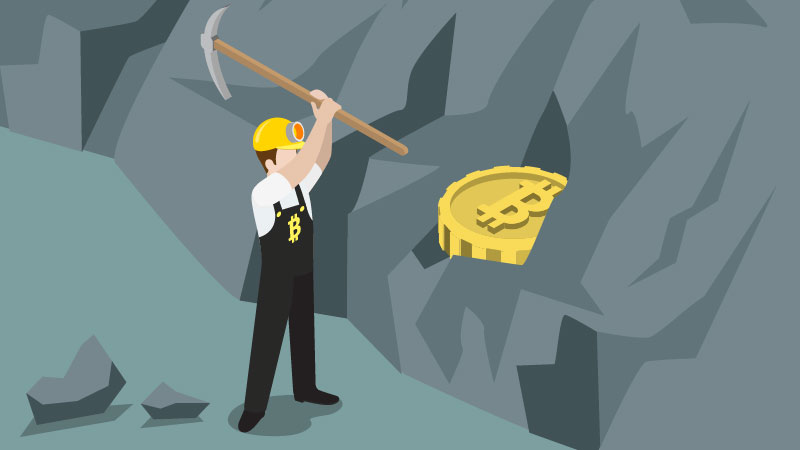
What is Bitcoin Mining? How To Do It?
Bitcoin mining can be thought of as the gold hunting of the digital world. So, what is Bitcoin mining, which is a mysterious and profitable activity that attracts the attention of many people? In this content, you will discover the basics of Bitcoin mining, how it is done and why this process is so important. If you are ready, let’s step into the world of digital mining!
What is Bitcoin Mining?
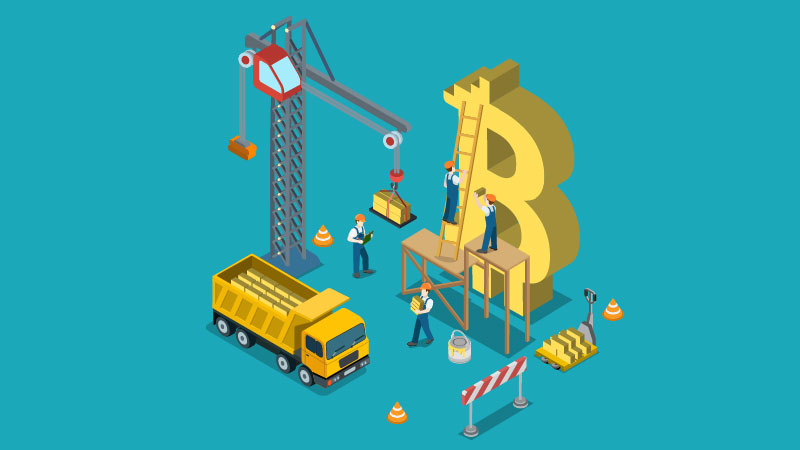
Bitcoin mining, also known as digital gold hunting, is a process that has an important place in the cryptocurrency world. So, what exactly is Bitcoin mining? This is Bitcoin network security It is a transaction process carried out to ensure the verification of transactions. Miners solve complex mathematical problems using specialized hardware and software. These transactions are verified with the Proof of Work algorithm and added to the blockchain. Those who are successful in the mining process are incentivized with Bitcoin rewards.
Bitcoin mining requires not only technical knowledge but also the right equipment (Bitcoin mining hardware and software) and strategy. Factors such as mining difficulty and Bitcoin halving influence miners’ earnings. Mining can be done individually or as part of a larger organization. It’s also important to understand the concept of farm mining, which refers to the combination of multiple BTC mining hardware devices for mass Bitcoin production. Additionally, cloud mining is another option. We will share more details about this in the following sections.
“What is Bitcoin mining?” Now that we have briefly answered the question, we can start examining the important topics on this subject. Those who want to get information not only about Bitcoin but also about crypto mining can take a look at this content: What is Cryptocurrency Mining? What does it do?
Who are BTC Miners?
Bitcoin miners are individuals or institutions that play an important role in the cryptocurrency world and provide Bitcoin network security and Bitcoin production. It is these people or institutions who ensure the verification of transactions by solving complex mathematical problems. Miners operating in the field of crypto mining verify blocks and add them to the chain using the Proof of Work algorithm during the Bitcoin mining process. As a result of these transactions, they earn Bitcoin rewards.
Can Anyone Create Bitcoin?
Technically, yes, anyone can produce Bitcoin. Of course, there are some basic requirements for this. The equipment and energy resources needed for Bitcoin mining can make it challenging for individuals to mine on their own. Additionally, the choice of mining hardware and software is also of great importance and directly affects earnings. Could mining services can help meet these needs, providing a more accessible solution for individual miners. Another important factor for Bitcoin production is costs. Although it is possible for anyone to produce Bitcoin, it’s important to note that the process is expensive and requires significant technical knowledge.
Why Does Bitcoin Mining Happen?
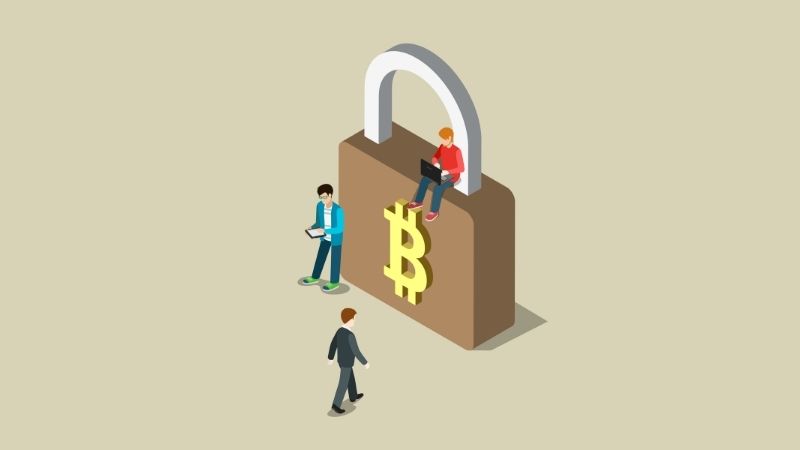
This question can be answered most briefly as contributing to Bitcoin network security and receiving Bitcoin rewards in return. But the answer is not limited to this. Bitcoin mining is vital to the Bitcoin network and there are actually many reasons for this, as can be seen below:
- Generating New Bitcoins: Bitcoin has a total supply limit of 21 million units, and mining is the only way to bring new Bitcoins into circulation. Miners achieve this by solving complex mathematical problems, creating new blocks in the process, and earning newly minted Bitcoins as a reward.
- Bitcoin Network Security: Miners use substantial processing power to verify transactions, and by doing so, they add them to the blockchain, maintaining the security of the network. This make the Bitcoin network more resilient to the attacks. Also as any attacker would need an immense amount of processing power to take over the control. Therefore, the more miners there are, the more they put power into the network, this makes it harder for anyone to compromise the network and take over the control.
- Confirmation of Transactions: Bitcoin miners verify the transactions on the network, group them into blocks, and add these blocks to the blockchain. This process ensures that Bitcoin transactions are both reliable and irreversible.
- Decentralization: Mining powers the Bitcoin network without relying on a central authority. Miners, spread across different regions, help maintain the network’s decentralized structure, ensuring no single entity can control it.
- Economic Incentives: Mining includes an economic incentive system. Being able to generate income through mining encourages more miners to join the network and increase the processing power of the network.
These reasons show that Bitcoin mining is more than just a technical process, it is an activity that is critical to the functioning and sustainability of the Bitcoin network. Additionally, these reasons can also be considered Bitcoin mining advantages.
How Does Bitcoin Mining Work?
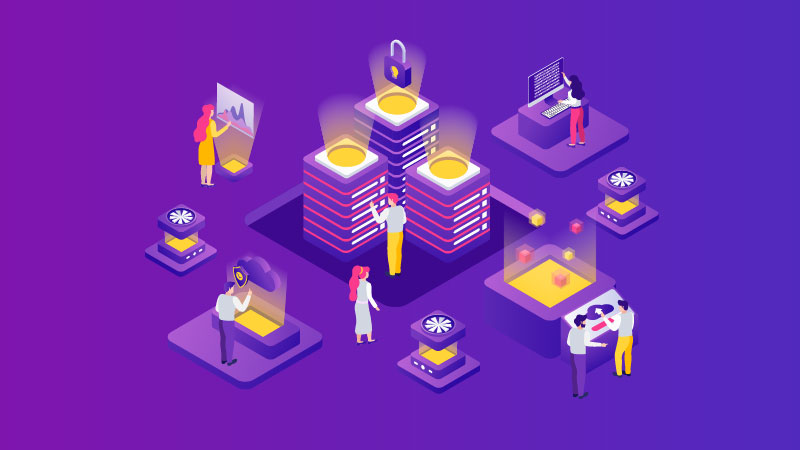
This title can also be understood as answering the question, “How is Bitcoin produced?” It can be accepted as the answer to the question. In order to mine Bitcoin, certain steps must be followed. These steps are as can be seen in the following headings.
Mining Equipment Selection
Special hardware is required for Bitcoin mining, or those who do not want to own hardware can get service from an outside source. So, what are Bitcoin mining equipment?
ASIC Mining
Among the most commonly used equipment for Bitcoin mining are ASIC (Application- Specific Integrated Circuit) devices. These devices are designed specifically for Bitcoin mining and offer high processing power, making them highly efficient for solving the complex mathematical problems required in the mining process. Therefore, ASIC miners are the preferred choice for serious Bitcoin miners looking to maximize their profits.
GPU (Graphics Card) Mining
GPU mining utilizes and done by graphics cards, which are general-purpose hardware commonly found in computers. It is originally designed for rendering graphics but it is also been highly useful for parallel computations, which makes it a top choose for data miners.
CPU (Processor) Mining
CPU mining relies on the central processing unit (CPU) which is the main component of a computer. Although it is not affective as GPUs or ASICs, it is still can be used for other pusposes, such as, mining on a smaller scale by individual miners.
Cloud Mining
Cloud mining is an option for those who lack the time, hardware, or technical knowledge for traditional mining. By renting mining power from a cloud mining service, individuals can participate in Bitcoin mining without needing to own or maintain expensive equipment. To learn more about cloud mining and how it works, check out our content:What is Cloud Mining? How is it done?
Mining Software Selection
The appropriate mining software should be decided for the selected mining equipment. Mining software allows you to manage mining transactions and contribute to the blockchain network.
Bitcoin Rewards
The Bitcoin reward and mining difficulty for each block change over time. During events known as Bitcoin halvings, block rewards are reduced, which directly impacts miners’ income.
Bitcoin mining is a field that requires technical knowledge and is constantly evolving. Choosing the right mining software and hardware is crucial for a successful mining experience. However, with the right strategies and technical expertise, Bitcoin mining can be a significant source of income in the cryptocurrency world. Now that we’ve answered “How is Bitcoin mining done?”, let’s explore how much you can earn and whether it’s profitable.
How Much Does Bitcoin Mining Earn? Is it profitable?
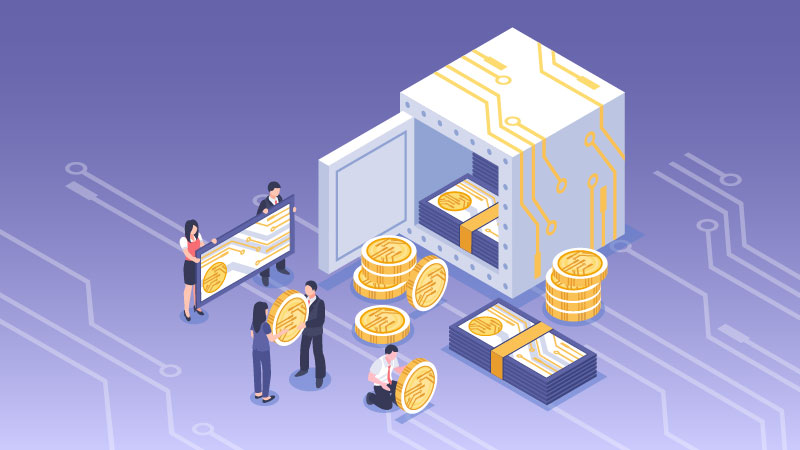
Mining profitability depends on several factors, such as electricity costs, equipment expenses, and, of course, the price of Bitcoin. The use of energy-efficient equipment and access to low- cost electricity can significantly impact profitability. Miners can also increase their chances of earning rewards by joining a mining pool, where they collaborate with others to find blocks more efficiently. This not only raises the likelihood of success but also makes the rewards more consistent.
For those looking to dive deeper into a key factor that influences Bitcoin mining earnings, check out our content:What is Halving? How Does It Affect BTC Prices After the Halving Period?
How Long Does It Take to Generate 1 Bitcoin?
It is difficult to give an exact time to produce Bitcoin. Because this time may vary depending on the current mining difficulty, the equipment used and the luck factor. But in general, in today’s mining environment it takes 10 minutes to produce 1 Bitcoin.
How Many BTCs Are Produced in a Day?
We stated that it takes 10 minutes on average for 1 Bitcoin. However, Bitcoin is mined in blocks, and as of the date of this writing, the amount of Bitcoin mined per block is 6.25. Based on this, a calculation can be made as follows.
60 minutes / 10 minutes = 6 blocks
24 hours * 6 blocks: 144 blocks
144 blocks * 6.25 Bitcoin = 900 Bitcoin
So, when a block is produced every 10 minutes, approximately 900 Bitcoins are produced in a day.
How Much Electricity is Required for 1 Bitcoin?
Bitcoin mining is known for its high energy consumption, and the amount of electricity required to produce one Bitcoin depends on many factors. These factors include the efficiency of mining equipment, electricity costs, and mining difficulty.
What Happens If Bitcoin Mining Stops?

A halt to Bitcoin mining could have serious negative impacts on the functioning, security and economy of the network. Consequences such as cessation of transaction confirmations, reduced security of the network, limitation of Bitcoin supply, and loss of mining rewards could cause major changes in the Bitcoin ecosystem. Therefore, it is vital that mining activities continue for the Bitcoin network to function properly.
Is BTC Mining Legal?
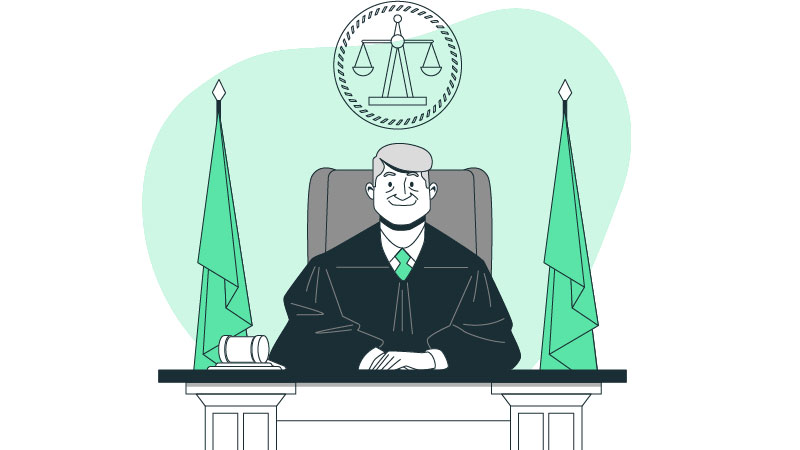
The legality of Bitcoin mining varies depending on the country. While it is fully legal in some countries, it is either banned or heavily restricted in others. Therefore, those who wish to engage in mining must carefully review the legal regulations and requirements of their country and ensure they comply with them.
Are There Any Disadvantages of Bitcoin Mining?

“Why is Bitcoin Important?” As we mentioned in the title, this action has advantages as well as some disadvantages. These can be listed as follows:
- Energy Consumption: Bitcoin mining requires the use of large amounts of electricity. This causes high energy costs as well as creating environmental impacts.
- Capital Requirements: The hardware (e.g. ASIC devices) and cooling systems required for mining may be considered expensive by many. This can result in a large initial investment for new miners. Additionally, considering that technology is advancing rapidly, the hardware used in mining may become obsolete quickly. This may bring new hardware updates.
- Competition: Bitcoin mining is becoming increasingly competitive. This can reduce the chances of individual miners succeeding and lead to large mining pools dominating the network.
- Regulatory Risks: Country governments may impose regulations against Bitcoin mining. This can create uncertainties about the legality and sustainability of mining activities.
Bitcoin mining is a complex process with both opportunities and challenges. Before elobrate it, it’s crucial to look into the pros and cons carefully. You’ll want to consider your resources, level of expertise, and whether you’re in it for the long haul. With the right preparation and knowledge, mining can be rewarding, but staying updated on market shifts, new tech, and any legal changes is key to making it work in the long run.